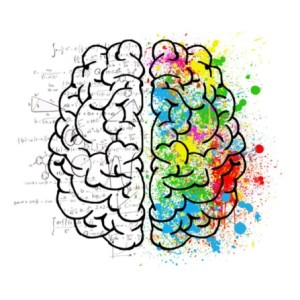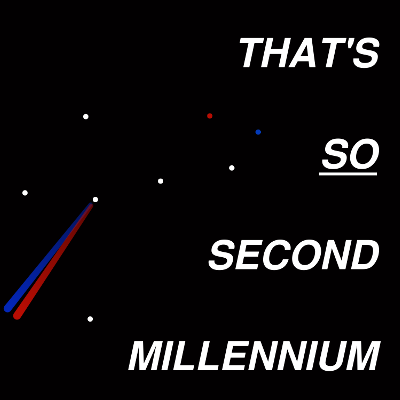Episodes

Monday Jul 30, 2018
Episode 018 - SCS Conference: Peter Koellner, Andrew Sicree
Monday Jul 30, 2018
Monday Jul 30, 2018
As I've mentioned, we batch recorded the last four episodes about a month ago, and so we opened with a retrospective on the conference as a whole and its significance.
We moved on to discuss Peter Koellner. Koellner was the next talk and probably deserves his own podcast. I have gotten his lecture slides from him but won't have time to analyze them for a few weeks. The short version for now is that he gave us some perspective on Godel's theorem, a result in mathematical logic that many (including many agnostics like the physicist and mathematician Roger Penrose) have taken to imply that human thought must transcend any finite logical system that could be, say, programmed into a computer: in other words, the human mind is not a computer. Koellner argued, in large part from Godel's own writings, that what he actually proved is probably that EITHER human thought transcends the mechanical OR that there are mathematical truths that transcend mind. This is potentially a blow to a number of people who rely on the argument to prove our superiority to our own machines, but I myself find either conclusion to be exciting.
Andrew Sicree was next. He gave this tremendously gung-ho talk about Father Nick Steno, the 17th century member of the founder's club of geology (I think that's fair; Sicree basically called him the founder, singular). It was mostly fairly familiar stuff to me, some of which I have lectured on myself in classes in passing. He is still known today for Steno's Laws of stratigraphy (i.e., the relative ages of rocks):
Principle of Superposition
Principle of Original Horizontality
Principle of Inclusions
and in mineralogy he is remembered for the Law of Constant Interfacial Angles, basically the very dimmest beginning of crystallography. However, Sicree gave some time to other aspects of Nicolaus Steno's thought and also to his career as a layman and cleric. I only thought I was a Nick Steno fan before this talk. Andrew Sicree is the real deal.

Monday Jul 23, 2018
Episode 017 - Aaron Schurger at SCSC: Fifty Years Without Free Will
Monday Jul 23, 2018
Monday Jul 23, 2018
It's a short one this week. We discuss the talk at the Society of Catholic Scientists Conference by Aaron Schurger with the delightfully provocative title "Fifty Years Without Free Will." (Those of you who are similiarly obsessive about grammar will appreciate my deep feeling of conflict about capitalizing the preposition "without"...one is not supposed to capitalize prepositions, yet it looks awful to have a seven letter word not capitalized. It's not capitalized in my notes, but it was in the program.)
Notes I took during the talk, which for this podcast pretty closely follows the drift of our conversation:
Distinction of the "neural decision to move"
Readiness potential with ~1 sec onset time
Libet et al 1983 Brain 106:623-42
asked subjects to report when they decided to move
happened ~3/4 sec after readiness potential, only ~1/4 sec before the movement
Taken by many as proof that "there is no free will"
Alternative interpretation: the "readiness potential" is random drift of neuron voltages
under the weak imperative to move
Need to pay careful attention to experiment setup & analysis of data [Paul's comment today: *always*]
Problems with only analyzing data time-locked to movement and extracted

Monday Jul 02, 2018
Episode 014 - Ed Feser's Keynote at SCS
Monday Jul 02, 2018
Monday Jul 02, 2018
In this episode we begin a series of recaps and discussions of the issues brought up by individual lecturers at the Society of Catholic Scientists conference on June 9 and 10. We start with Ed Feser's keynote, "The Immateriality of the Mind."
Feser's objective was to highlight how our ability to be rational, and in particular for our thoughts to mean something unambiguous - even in the face of our inability to express ourselves in a completely unambiguous way in our spoken or written words - makes it difficult to maintain a purely materialist / physicalist view of human minds and therefore of the universe they inhabit.
At the outset he noted that rationality tends to occupy less attention in philosophy of mind and matter than two other properties, consciousness and intentionality, which seem widely taken as more difficult to explain by our contemporaries. For ancient and medieval philosophers, however, rationality was probably the clearest indication that the human mind is not some sort of solely physical mechanism.
Feser presents an argument via James Ross (Thought and the World) to try to bring this older consensus into the mainstream. It can be presented thus:
- Formal thought processes can have an exact, unambiguous content.
- Material signs and processes never have unambiguous content.
- Formal thought processes must employ an element not dependent on materials signs and processes.
We discuss Feser's points and a few of our own in favor of the two premises: our inability to be sure of the content of arithmetical symbols used outside our own range of experience, the ambiguity of translating ancient languages like Linear A, and the absurdity of believing I can't ultimately know what I'm thinking about.

Monday Jun 25, 2018
Monday Jun 25, 2018
Intro
Overview of the conference - schedule
Talks
Edward Feser & connections to Bishop Barron
Theme: Human Mind & Physicalism
Development of the problem and the amazing change in intellectual climate since the 19th century
Laplace and absolute determinism - 19th century consensus
Quantum mechanics demolished this intellectual basis for determinism, although it is clung to fiercely down to the present day, including the profoundly horrifying "many worlds" hypothesis
Bell inequality and the talk by Valerio Scarani about the closing of the loopholes that would allow a "hidden variables" interpretation of quantum mechanics (which would also save determinism, in a much saner way than the "many worlds" hypothesis)
Materialism and "spiritualism" (if you will) are on an equal logical footing, even if cultural issues continue to propel many scientists and intellectual citizens of the contemporary world away from belief in extramaterial beings
Society of Catholic Scientists as a place of refuge from this social pressure toward materialism
The gap between spiritual and material in ancient thought versus modern thought
The problem of qualia, choice, and consciousness and the lack of an actual materialist model for these, as opposed to evasive and reductionist language
On the other hand, the reality of a physical manifestation of all (or nearly all) mental phenomena, the dignity of matter in this detailed participation, and the absolute need for human souls to have bodies in order to be complete human beings (in contrast to Manichean, Platonic, or Cartesian dualism)
The scholastic notion of the human soul as form of the body
The Aristotelian soul / souls
Are vegetative (and animal) souls the forms of those bodies...are those essentially their genetic structure?
This ties back to our existing discussions about "hylomorphism for the third millennium" (so to speak)
The need for a new metaphysics and philosophy in general to rise up and deal with the strange new world that modern science has brought to our attention.
The scholastics, Aquinas of course being the one we remember, had a philosophy that was capable of being constructive...Chesterton's comment that modern philosophers ask us to accept some crazy thing in order to found their system, while Aquinas' starting point was common sense.
The difficulty of thinking and doing interdisciplinary scholarship in the modern world, despite decades of recognizing that we need to do it, due to the volume of human knowledge today and also the whole economic and sociological apparatus that depends on measuring scholars' output somehow...which is tremendously easier for single-focus scholars to maximize.
There is a unique joy that we can have as scientists of faith...both in our subject matter and in our fellowship with each other.
Our next few episodes will look at the subject matter of specific talks at the conference.

Monday Jun 18, 2018
Episode 012 - Society of Catholic Scientists
Monday Jun 18, 2018
Monday Jun 18, 2018
Not to be confused with the League of Extraordinary Gentlemen, although one would understand the mistake.
Bill interviews Paul about his experience and observations at the Society of Catholic Scientists conference that took place June 8-10 at the campus of Catholic University of America in Washington, D.C.
The SCS is a very young organization. Its first president is Stephen Barr, a physicist at the University of Delaware. Its first conference was in April 2017 in Chicago. The theme of the 2018 conference was "The Human Mind and Physicalism"--physicalism being a somewhat more precisely defined term than its synonym, materialism. (Believe it or not, some folks at the meeting thought those two elements in the title were probably incompatible.)
Paul discusses the meeting and the variety of scientists he saw and met there, including Barr, Juan Martin Maldacena (a prominent string theorist), Aaron Schurger (a neuroscientist), and more. Bill and Paul do a little digging and comment on motivations for the group, including the desire for fellowship (like the existing group, Catholic Association of Scientists and Engineers) but also to band together against the folly of the existing culture and its tired, hugely outdated idea that science and faith (certainly the Catholic faith) are logically incompatible. GK Chesterton was quite right when he commented that the quarrel between science and religion was properly left to prematurely arrogant scientists and sola scriptura fundamentalists back in the NINETEENTH century. It's the twenty-first, now, and we should get ourselves to the business of putting this to bed.
Paul elaborates on this final fact at some length, discussing the parallels between the current day and the scholastic synthesis of the thirteenth century. Odd, is it not, that in the broad sweep of history, Aristotle and his universe existing indefinitely backward in time lost out to the stories of a bunch of Hebrew peasants who thought the Prime Mover had actually created the world at a specific point...

Monday Apr 23, 2018
Episode 004 - Complexity, Cosmic Evolution, Change and Certainty
Monday Apr 23, 2018
Monday Apr 23, 2018
Paul elaborates on how the hylomorphic principle, if anything, fits quantum physics better than it fit the world the medievals knew. Bill asks whether the worldview of people of faith is too rigid, while that of the secular masses is too loose. Paul wonders what "shades of gray" really means, and points out that even though the materialist worldview has become harder and more dogmatic, 20th century physics really exploded its scientific foundation. This epsiode brought to you by Arthur Compton's Freedom of Man and Stephen Barr's Modern Physics and Ancient Faith.

Monday Apr 02, 2018
Monday Apr 02, 2018
Why pick either science or religion when you can have both? We open the discussion and touch on how fields as disparate as cosmology, neuroscience, and psychology interweave with faith in fascinating ways.

Tuesday Mar 27, 2018
TSSM - Trailer
Tuesday Mar 27, 2018
Tuesday Mar 27, 2018
Is it really true that science and religion are polar opposites? Must one be true and the other false? What must the universe be like if BOTH are true at the same time? Join Bill and Paul, a Catholic journalist and scientist, as we explore intellectual ground millennia old and cutting edge, from the realms of physics, philosophy, neuroscience, psychology, geology, and more from the perspective of people who take their faith AND their science seriously.

